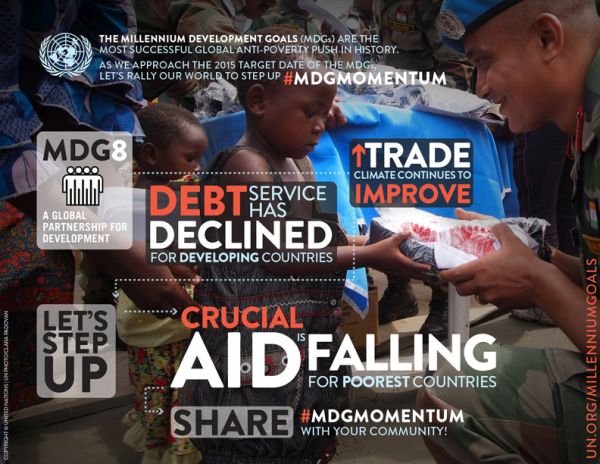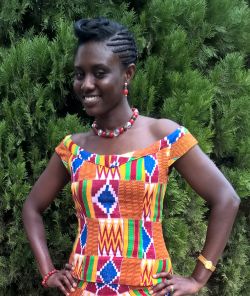Goal 8: Building a global partnership for development
As part of this interview series, DAAD scholarship holders consider the United Nations’ Millennium Development Goals in light of their own unique expertise as both professionals and international students in Germany. Here, Christine Bonsu from Ghana talks about global partnerships and their importance for sustainable development.
“No one is alone in the world”
Christine Bonsu studied “Spatial Planning for Regions in Growing Economies” at TU Dortmund University (Germany) and Kwame Nkrumah University of Science and Technology in Kumasi (Ghana). Today she applies this knowledge as a consultant in Kumasi, where she supports companies and NGOs in the area of land-use and transportation planning.
Development cooperation work strives to find the balance between intensive collaboration/support on the one hand, and purely financial support on the other. How can global partnerships help address this challenge and achieve the balance?
Certainly, industrialized countries should do more than just wire money. But they must also understand the culture and unique character of the respective partner country, because strategies developed and implemented by industrialized countries themselves cannot simply be picked up and put down onto other countries. Every country faces its own challenges. In Ghana, for example, it’s healthcare and transportation. Also, the country’s people should be involved more in development processes. After all, it is their future we’re talking about.
Ghana has one of the strongest, most successful economies in sub-Saharan Africa. What role does international cooperation play in this?
International partnerships are very important for Ghana, and many have a long history. Having this experience is crucial; it allows the stakeholders involved in the process to know where to focus their energy, and to avoid imposing inappropriate or unsuitable systems on the country. One example of successful cooperation is the partnership with the Japan International Cooperation Agency, which helps boost incomes and improve living conditions in rural regions. This cooperation works because it taps Ghana’s own unique potential, and takes advantage of Ghana’s natural and cultural resources.
As of this year, the Sustainable Development Goals (SDGs) will continue the work begun by the Millennium Development Goals. What is your take on the SDGs?
The Millennium Development Goals were definitely a good start. Now the Sustainable Development Goals are wider ranging, more differentiated. They address the social, economic and environmental challenges in a more holistic way, but also more concretely. It’s also good that the poor are being involved, which is very often not the case.
How do global partnerships support the Sustainable Development Goals?
There is no way to achieve the Sustainable Development Goals without global partnerships. Only if countries cooperate with one another can the goals be realized on a global scale. Of course each country must first consider which goals are most relevant and what their action priorities are. But in the second step, individual country needs and proposed strategies should be brought to light and discussed on an international level so that we can accelerate the process and support each other. After all, no one is alone in the world.
Read another interview about goal 8 here!
More information on the eight UN Millennium Development Goal is available here.
More information on the Sustainable Development Goals is available here.
Interview Series “From 1 to 8: How close are we to achieving the Millennium Goals?”







